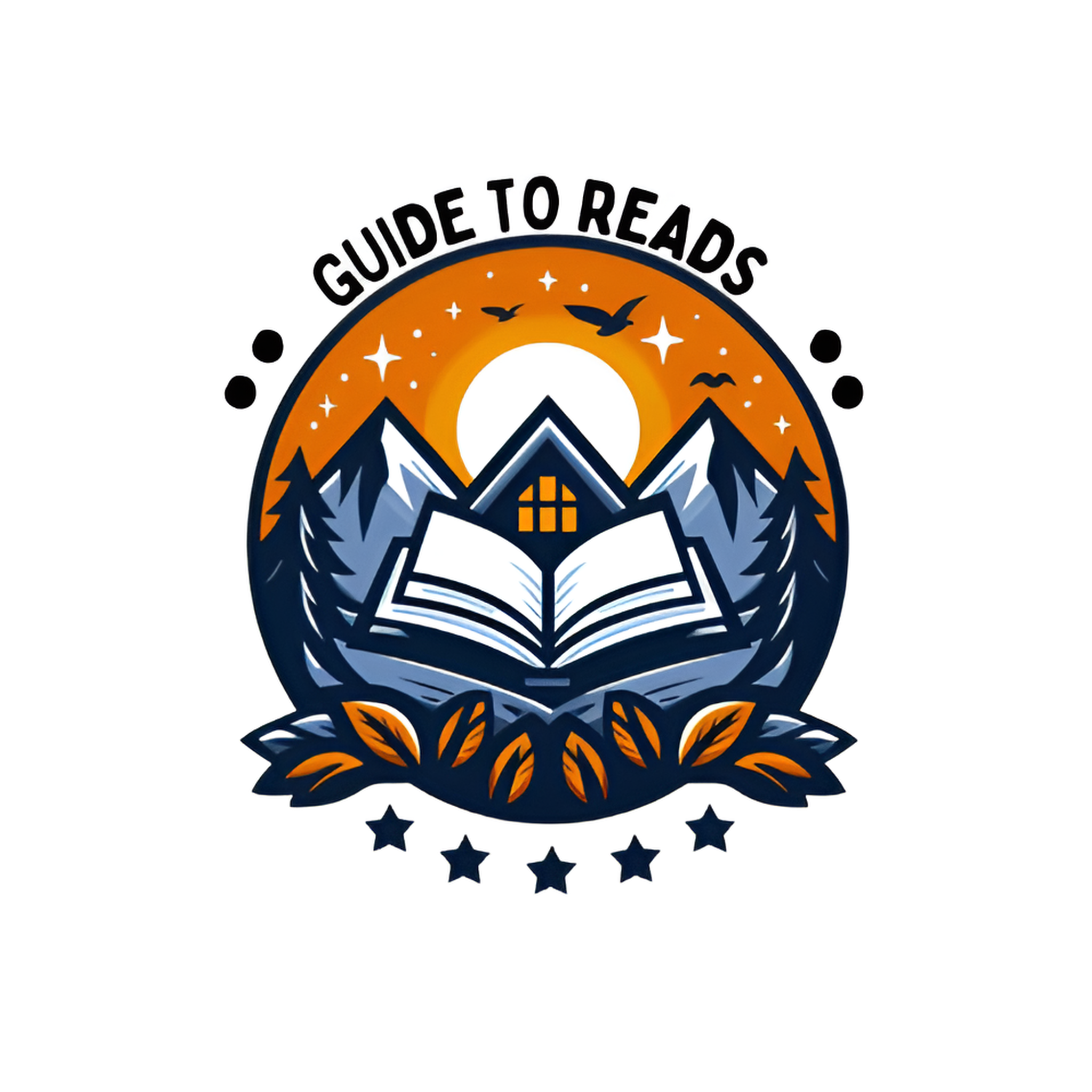The world of psychological fiction offers a deep dive into the complexities of the human mind, crafting narratives that are as enigmatic as they are captivating. This genre, renowned for its intricate portrayal of characters’ inner lives, serves as a mirror reflecting our own psychological landscapes. From classic works to contemporary masterpieces, psychological fiction explores themes of identity, perception, and the thin line between reality and delusion. In this article, we will embark on a journey through the intriguing world of psychological fiction, examining how it delves into the human psyche and reveals the darker corners of our minds.
The Essence of Psychological Fiction
Understanding Psychological Fiction
At its core, psychological fiction is a genre that delves into the inner workings of characters’ minds. It focuses on mental states, emotions, and perceptions rather than external events. The stories often feature protagonists who grapple with internal conflicts, presenting a rich tapestry of psychological landscapes. This invites readers to explore the depths of human consciousness, making it a profound tool for understanding the human psyche. By dismantling perceptions of reality, psychological fiction challenges basic assumptions and encourages new perspectives on human motivation and behavior.

One way this genre achieves this is through the use of unreliable narrators, whose skewed perspectives of events invites the reader to question what is known. These characters create a sense of ambiguity that draws readers further into exploring the complexities of the characters’ mental states. While unreliable narrators present challenges to understanding reality, they can also serve as a mirror reflecting how distorted perceptions are an inevitable part of human experience. Readers are thus prompted to contemplate the limitations of human perspective and judgment.
- Best Books to Cultivate a Clear Mind and Improve Your Thinking
- Embrace the Power of Manifestation: 7 Steps from « Manifest » to a Fulfilling Life
- Unleash Your Brain’s Potential: How to Rewire Your Mind for Success
- Boost Your Well-being Naturally: 9 Ways to Increase Dopamine Levels
The Role of Unreliable Narrators
One of the hallmark features of psychological fiction is the use of unreliable narrators. These characters challenge our perceptions of reality, creating a sense of ambiguity and intrigue. By presenting skewed or subjective accounts of events, unreliable narrators force us to question what we know and explore the complexities of their mental states. Classic examples include novels like Fight Club by Chuck Palahniuk and Gone Girl by Gillian Flynn, where the unreliable narrative plays a central role in the unfolding drama. These novels feature narrators whose perceptions of themselves and situations are distorted in intriguing ways, keeping readers engaged in piecing together truth from deception.
Key Characteristics of Psychological Fiction
What makes psychological fiction truly captivating? The genre is marked by several key characteristics:
- Intense Characterization: Characters in psychological fiction are often deeply flawed and complex. Their internal struggles drive the narrative, offering readers an intimate look at their psychological states. Readers become absorbed in learning what shapes these characters’ perceptions and motivations.
- Unreliable Narrators: Many psychological fiction novels feature unreliable narrators whose perceptions are distorted, creating suspense and ambiguity. These characters challenge readers’ assumptions and invite interpretation of hidden motivations and perspectives.
- Exploration of Mental States: The genre frequently explores themes such as paranoia, obsession, and delusion, providing a profound commentary on the human condition. It invites examination of how and why people develop certain perceptions of reality and how mental states evolve over time.
- Best Books to Cultivate a Clear Mind and Improve Your Thinking
- Embrace the Power of Manifestation: 7 Steps from « Manifest » to a Fulfilling Life
- Unleash Your Brain’s Potential: How to Rewire Your Mind for Success
- Boost Your Well-being Naturally: 9 Ways to Increase Dopamine Levels
Exploring the Best of Psychological Fiction
Classic Novels of the Genre
« Crime and Punishment » by Fyodor Dostoevsky
One of the greatest works of psychological fiction, « Crime and Punishment » explores the tortured mind of Raskolnikov, a young man who commits a murder and grapples with the guilt that follows. Dostoevsky expertly dissects Raskolnikov’s inner conflict, capturing the torment of guilt, justification, and existential crisis. Raskolnikov’s mental deterioration is portrayed in vivid detail, highlighting the psychological unraveling that often stems from committing grave moral transgressions.
Key Themes:
- Guilt and Redemption: Explores the psychological toll of committing a crime and seeking redemption through intense remorse and punishment.
- Moral Dilemmas: Delves into questions of morality, punishment, and justice by examining a man whose rationalizations for murder are ultimately no match for his consciousness.
« The Bell Jar » by Sylvia Plath
Sylvia Plath’s « The Bell Jar » is a semi-autobiographical novel that follows Esther Greenwood, a young woman struggling with depression during her internship. Plath vividly portrays Esther’s descent into mental illness, capturing with raw honesty the sense of isolation, confusion, and helplessness that often accompanies psychological disorders. Esther’s battle to overcome the « bell jar » of her depression offers poignant insight into the lived experience of mental illness.
Key Themes:
- Mental Illness: Offers a deeply moving exploration of depression and its impact on identity, opportunity, and autonomy.
- Societal Expectations: Critiques the pressures placed on women in the 1950s and the struggle for self-actualization within prescribed gender roles.
« One Flew Over the Cuckoo’s Nest » by Ken Kesey
In « One Flew Over the Cuckoo’s Nest, » Ken Kesey explores the dynamics of power and control within a psychiatric institution. The novel delves into the minds of its characters, highlighting how authority and mental illness intersect, with the infamous Nurse Ratched serving as the embodiment of oppressive control. Chief Bromden’s perceptions of the ward offer insight into declining mental states versus institutional repression of individual expression.
Key Themes:
- Power and Control: Examines the psychological effects of institutional power through imposing rigid rules and punishment for nonconformity.
- Rebellion and Conformity: Looks at the struggle between individuality and societal norms, and the oppression that can stem from enforced obedience.
« The Tell-Tale Heart » by Edgar Allan Poe
One of Poe’s most renowned short stories, “The Tell-Tale Heart” introduces readers to an unnamed narrator whose obsession leads to disturbing acts. By unraveling the narrator’s state of mind, Poe investigates the fine line between sanity and madness. Readers are left to interpret whether the invasion of the old man’s room was truly motivated by his « vulture eye » or by the unstable workings of the mind. This early work pioneered the art of psychological suspense that has influenced generations of authors.
Key themes:
- Obsession and Paranoia: Explores how irrational thoughts can consume one’s psyche.
- Unreliable Narration: The narrator’s state of mind calls reliability into question, generating ambiguity.
« Fight Club » by Chuck Palahniuk
Chuck Palahniuk’s « Fight Club » explores masculinity and consumerism through an everyman protagonist increasingly lost amid anomie of the late 20th century. When he finds camaraderie in an underground fighting ring, a deeply complex character emerges: Tyler Durden. Durden both fulfills the protagonist’s desire for purpose and threatens to consume his grip on reality. Capturing the feel of an unreliable screenplay, Palahniuk delves into themes of rebellion, violence, and the longing to transcend a disconnected age.
Key themes:
- Identity and Purpose: Questions how men define themselves in a post-industrial world.
- Reality and Illusion: Playing with reality and fantasy, the novel challenges perceptions of truth.
“The Stranger” by Albert Camus
In “The Stranger”, Albert Camus introduced one of fiction’s most iconic existentialist figures in Meursault. Under Camus’ economical prose, readers see the world anew through Meursault’s detached lens as he drifts through a day that will change his life. His emotional numbness and inability to perform socially expected feelings reveal how the absurdity of human experiences like death cannot be rationalized. Meursault’s confrontation with the meaninglessness of life has influenced generations of readers.
Key themes:
- Existentialism: Camus questions whether life has intrinsic meaning through a man indifferent to social norms.
- Detachment as a lens: Meursault’s detached perspective generates new insight but also leads to condemnation.
« American Psycho » by Bret Easton Ellis
Bret Easton Ellis provoked readers with this satirical take on 1980s excess, centering around Patrick Bateman, a wealthy New Yorker who just may be a serial killer. Ellis delves into criminology mingled with musings on style and status. Beneath the veneer of wealth and privilege, the novel suggests, lies a soulless void and violent impulses. Though extremely graphic, “American Psycho” also parodies corporate culture and masculinity. It critiques empty status symbols through deeply disturbing means.
Key themes:
- Identity in consumerism: Questions if wealth and possessions truly fulfill basic human needs.
- Violence as catharsis: Explores if brutality stems from emptiness or psychopathy.
« The Yellow Wallpaper » by Charlotte Perkins Gilman
A pioneering work of feminist literature, « The Yellow Wallpaper » immerses readers in the disorienting worldview of a woman suffering from postpartum depression. As prescribed the « rest cure, » her dreams blur with waking life until the wallpaper consumes her. Gilman critically examines how societal dismissal of women’s health issues can enable mental unraveling. A testament to one woman’s unspoken suffering, it influenced understandings of gender and mental health for generations to come.
Key themes:
- Madness and creativity: Questions if creativity springs from or fuels psychological distress.
- Gender roles and medical abuse: Critiques how women’s health was neglected and validity dismissed.
Modern Novels That Probe the Human Psyche
Psychological fiction continues to thrive as modern authors delve into the complexities of the human mind. Two contemporary masters of the genre are Gillian Flynn and Alex Michaelides, whose bestselling novels showcase compelling characters and timely themes.
« Gone Girl » by Gillian Flynn
« Gone Girl » is a masterful psychological thriller that keeps readers on the edge of their seats. The novel follows the disappearance of Amy Dunne on her wedding anniversary and the subsequent unraveling of her seemingly perfect marriage as events come to light. Through alternating nonlinear perspectives, Flynn explores profound themes of manipulation, deception, and the evolving yet murky complexities within marriage. She leaves readers questioning where truth ends and deception begins, highlighting how individuals can don manipulative facades over time.
Key Themes:
- Deception and Facade: Questions how well people truly know their partners or themselves as masks form over time.
- Marriage Dynamics: Delves into the dark undercurrents within relationships, from dominating control to the liberating allure of shedding identity in another.
« The Silent Patient » by Alex Michaelides
In « The Silent Patient, » Alex Michaelides tells the story of psychotherapist Theo Faber’s obsession with solving the mystery of why his patient Alicia Berenson shot her husband five times and then never spoke again. Michaelides keeps readers guessing through page-turning twists as Faber delves into Alicia’s past. This psychological puzzle explores how repression can stem from trauma and how the unknown frequently proves more intriguing than truth. It also calls into question whose version of events one can trust.
Key Themes:
- Trauma and Repression: Examines how trauma manifests internally through silence rather than expression.
- Unreliable Narration: Plays with perspectives and the elusiveness of objective truth.
« The Secret History » by Donna Tartt
Donna Tartt wove an intricate web of deception and intrigue in « The Secret History. » The novel follows a close-knit group of classics students at an elite Vermont college, who draw a new student into their circle. Tartt crafts vivid and complex characters, particularly protagonist Richard Papen who becomes entranced by this exclusive group. When one of their discussions turns deadly, the narrative descends into questioning how well people truly know one another and the masks that can hide dangerous secrets.
Key themes:
- Class, status and belonging: Questions what draws people together and the lures of exclusivity.
- Perception vs reality: As truths emerge, readers re-examine how well the characters and their motivations were understood.
- Best Books to Cultivate a Clear Mind and Improve Your Thinking
- Embrace the Power of Manifestation: 7 Steps from « Manifest » to a Fulfilling Life
- Unleash Your Brain’s Potential: How to Rewire Your Mind for Success
- Boost Your Well-being Naturally: 9 Ways to Increase Dopamine Levels
The Impact of Psychological Fiction on Readers
By inviting deep explorations of mental states and internal conflicts, psychological fiction cultivates important effects on those who engage with such richly layered stories. Two noteworthy impacts are how the genre fosters empathy and understanding while also delivering therapeutic value through reading.
Empathy and Understanding
One of the most significant impacts of psychological fiction is its ability to foster empathy and understanding. By immersing readers in the inner lives of characters, the genre encourages confronting one’s own psyche from new angles. This refines understanding of how perceptions form and how easily outward judgments can misconstrue internal complexities. It generates insight that we all have dark facets and share more common ground in our inner worlds than outer demarcations may suggest. Such deepened understanding cultivated by this genre can lead to greater empathy for others’ journeys and a profound appreciation of shared human depths beneath superficial distances.
The Therapeutic Value of Reading
Psychological fiction also offers self-reflective and cathartic benefits. Engaging with stories that grapple openly with mental health, emotions and life’s depths invites processing of one’s own experiences through fresh lenses. Readers gain new perspective on how trauma, crises or disorders manifest as well as adaptive strategies some characters adopt. Whether lightening heavy loads or motivating care seeking, literature provides a sanctuary for contemplating life’s tribulations and human resilience. By promoting awareness and compassion around psychological challenges, the genre cultivates more empathetic societies and individuals fortified against stigma.
A Journey into the Human Mind
Psychological fiction offers readers a profound opportunity to gain perspective on the intricate dynamics of the human psyche. Whether through complex protagonists struggling with inner turmoil, like Raskolnikov in “Crime and Punishment,” or an emotionally detached outsider viewing life from new angles, such as Meursault in “The Stranger”, these novels immerse us in vivid meditations on the inner worlds that shape our existence.
By drawing us into characters’ deepest fears, desires, and questioning of life’s meaning, psychological fiction leaves a lasting impression. It generates both intellectual realizations about perception and behavior as well as emotional resonance with shared human struggles. Through its complex characterization, the genre cultivates empathy and insight and widens our lenses for interpreting ourselves and others.
For those curious to explore humanity’s rich inner terrain, psychological fiction presents a captivating gateway. The works of masters like Dostoevsky, Camus, and Poe invite reflection on our capacity for darkness or detachment as well as redemption and compassion. Simply by opening one of these profound novels, readers embark on an enlightening journey through the intricacies of human psychology, emergent in all its paradoxical beauty.
Whether seeking thought-provoking entertainment or self-exploration, consider enriching your perspective on life’s mysteries through some of literature’s most moving depictions of the mind. Don’t forget to subscribe to our newsletter to learn about more recommendations and insights into penetrating life’s depths through these entrancing works of art.
For further reading on psychological fiction, explore The Guardian’s list of the best psychological novels or check out Goodreads recommendations.





































Add comment